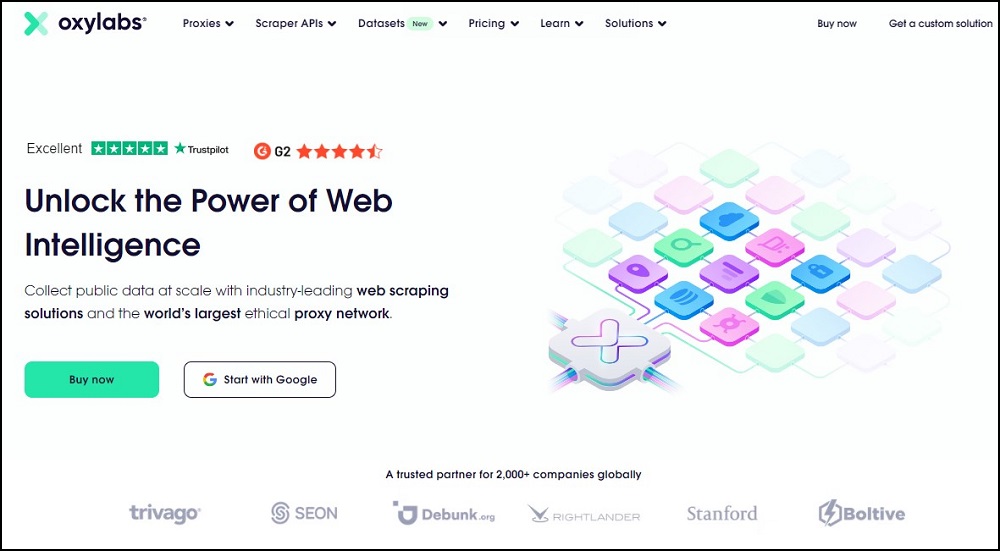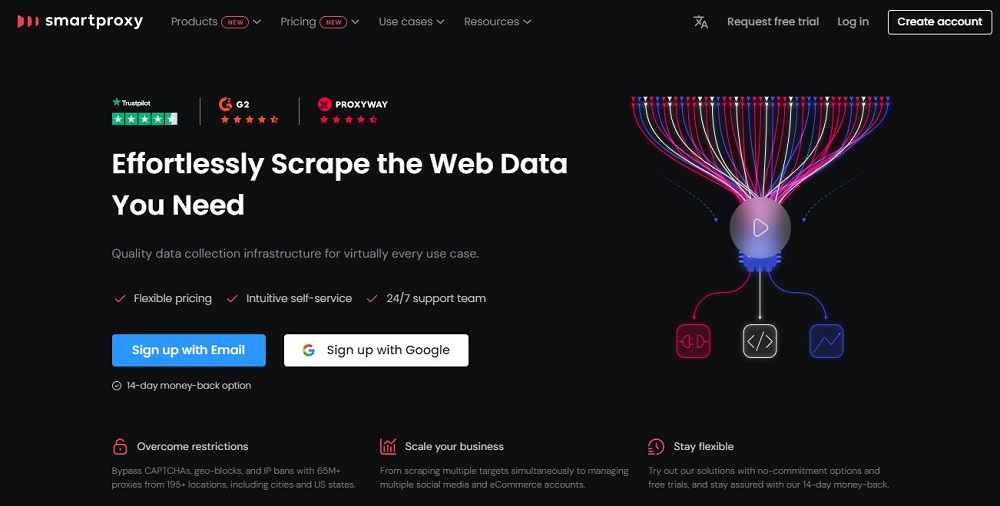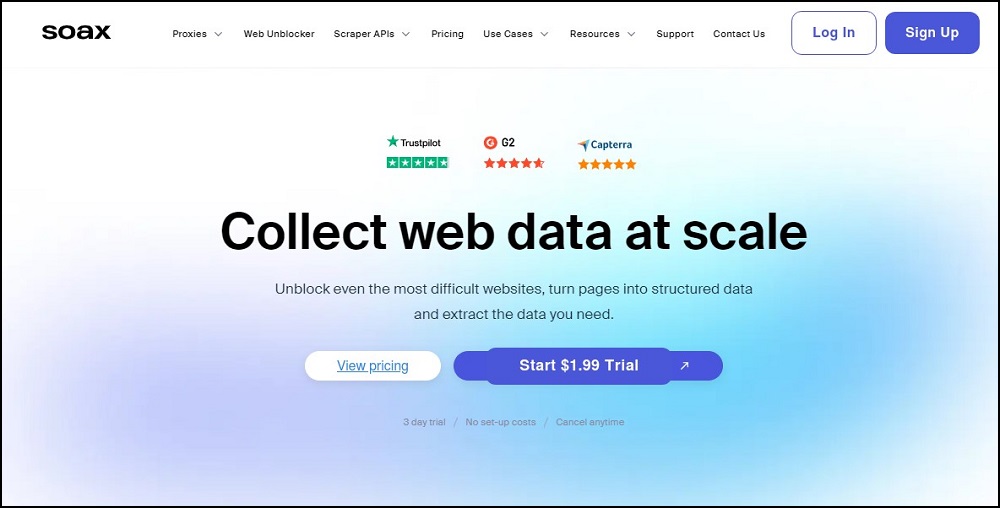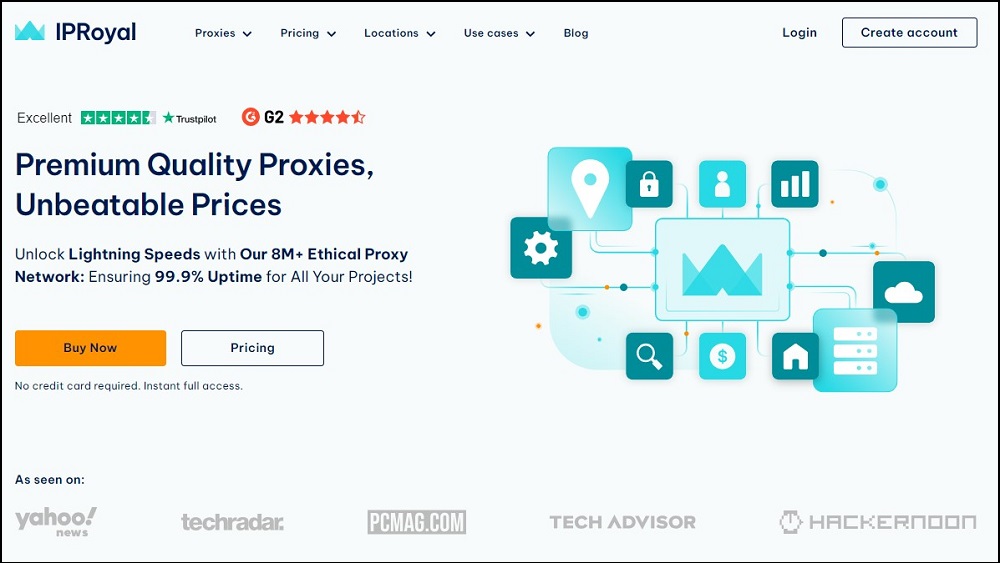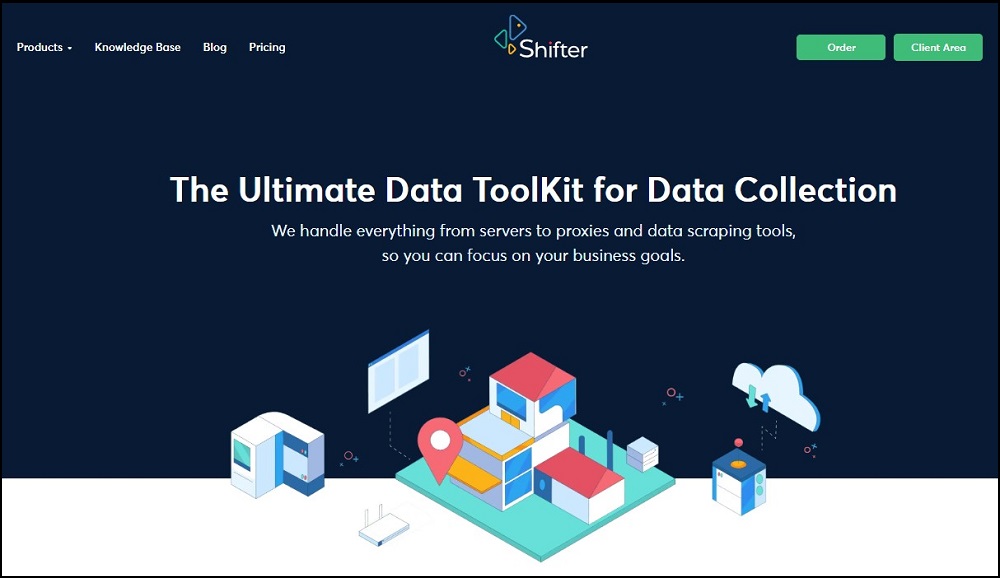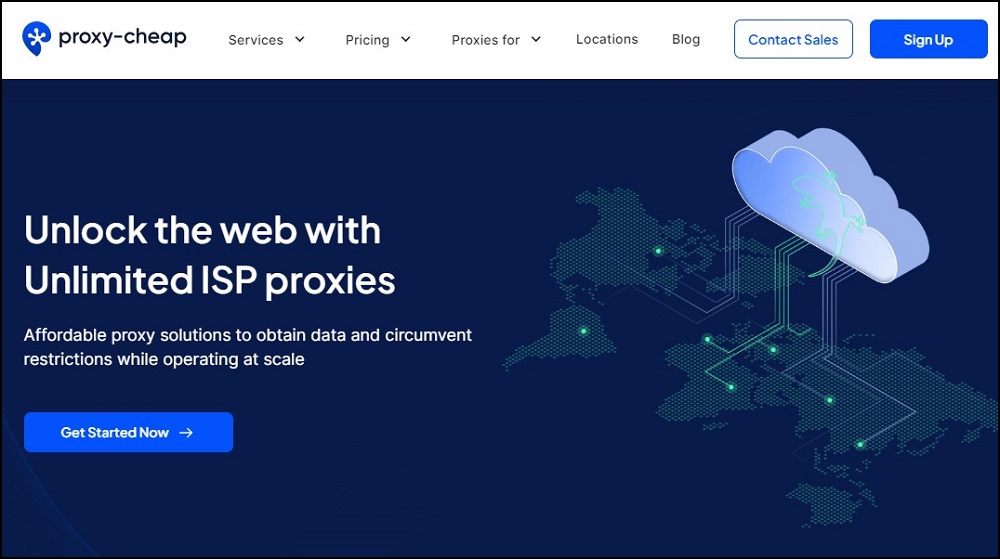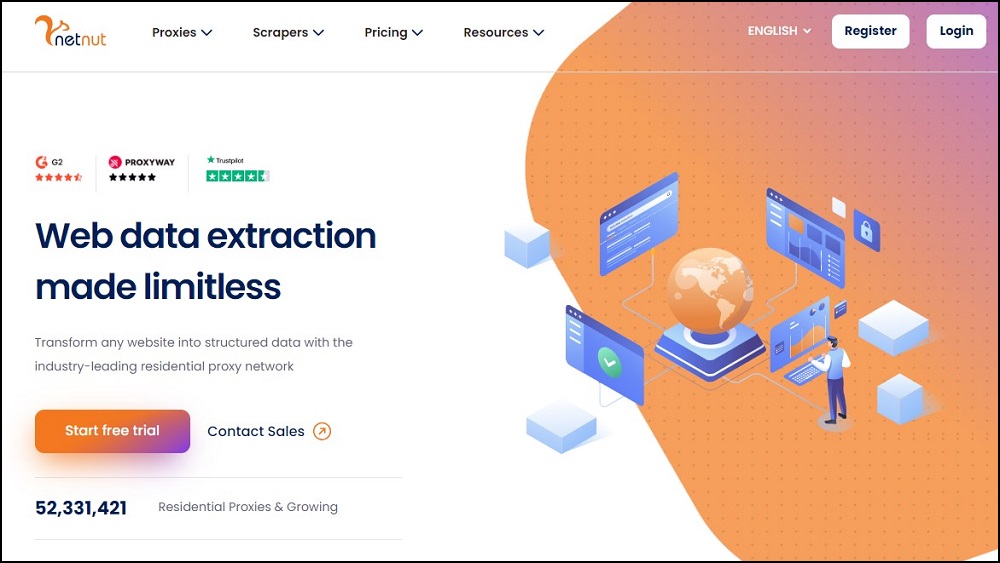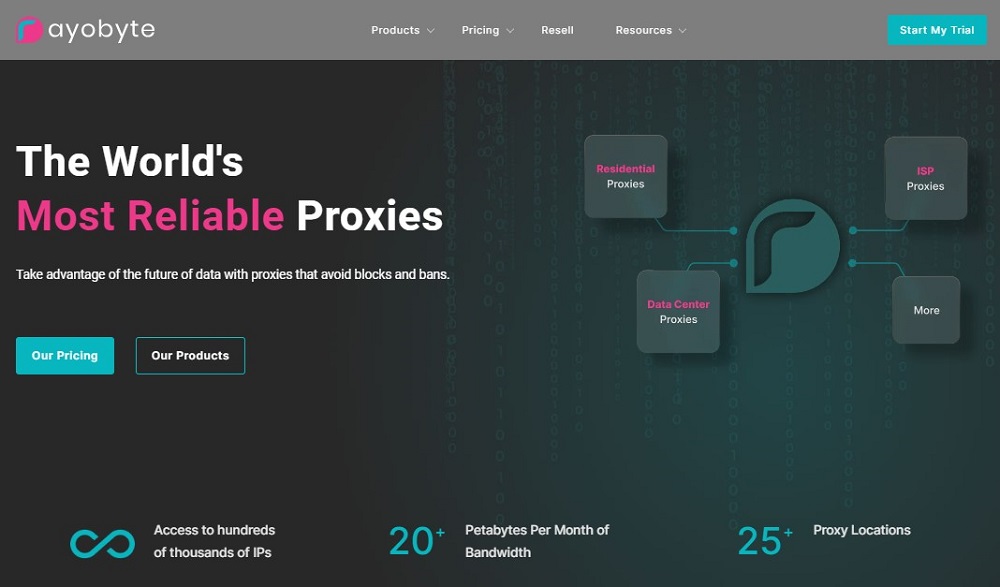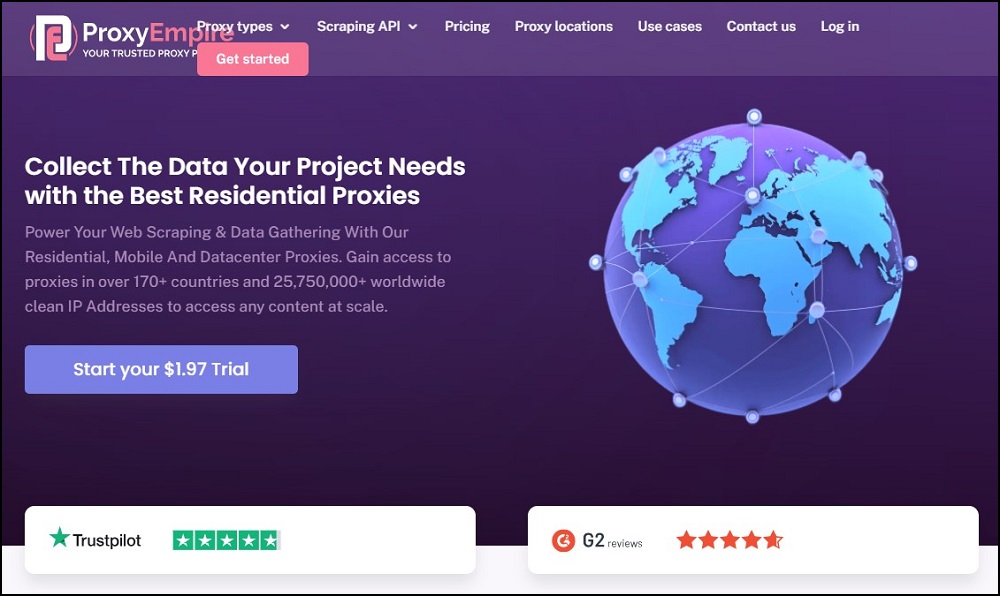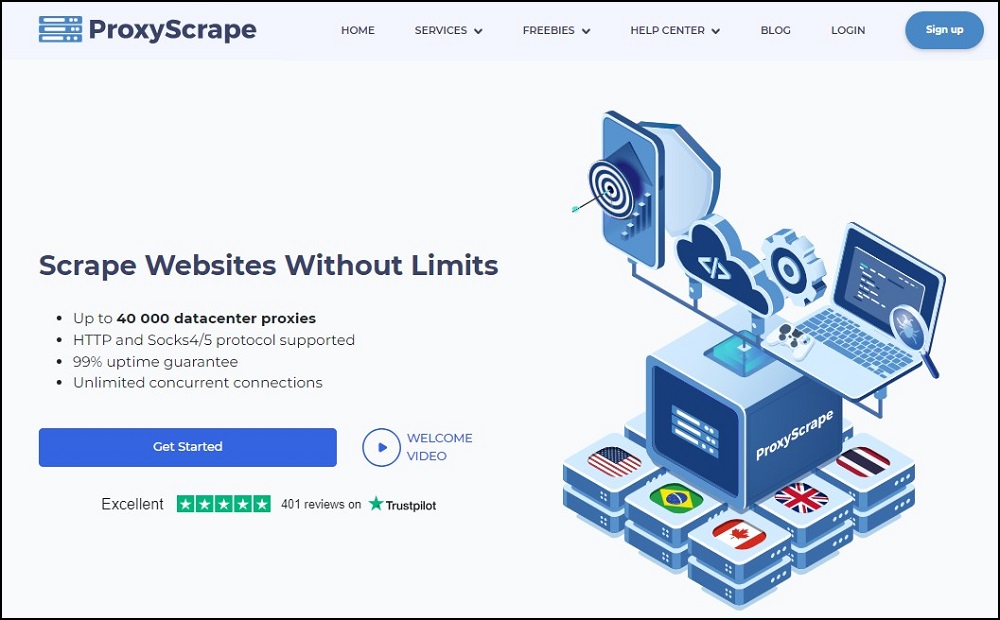With GeoSurf going down in history as one of the most popular proxy providers, what are your options? Are you migrating to Bright Data or looking for other options? If you want to go with something else, today’s list of GeoSurf alternatives has you covered with some of the best options available.
We rely on many services daily, and it seems that the proxies are among the more popular choices. Their use cases range from changing your IP to scraping, and that flexibility is one of the main reasons why they are so popular.
Thanks to the high demand, we have many options, but unfortunately, they don’t always last too long. That’s the case with GeoSurf. The Israeli company has been around since 2009, and we often praise it as being one of the best in the business.
For the past several years, GeoSurf and Bright Data have been in a legal battle over patent infringement and theft of trade secrets from the latter. The court ruled in favor of Bright Data, and the settlement was that GeoSurf would stop selling its products and offer its customers the option to migrate to Bright Data. Unfortunately, as of the 2023 of December, GeoSurf closed shop, leaving its customers in a predicament.
Bright Data offers the same pricing structure for the following 6 months, but some people aren’t happy with that, and they’re looking for alternatives. If you’re in the second group, this list is the one you need. Today, we’ll be covering the best 10 alternatives for GeoSurf.
Since all active users can migrate to Bright Data, we won’t mention that provider. It’s an excellent one, but the point of this list is to offer alternatives other than the obvious one.
1. Oxylabs
Since we’re skipping Bright Data as an option, this list starts with its biggest competitor. Oxylabs is a provider that’s been on the market for long enough for us to recognize it as one of the best in the industry.
Regarding the features, Oxylabs is a provider that won’t leave you asking for more. The company has a pool of over 102 million IP addresses across all types, making it the largest network in the industry. Having that many proxies means that the location coverage is excellent. With this provider, you’re looking at some kind of IP address in every country in the world.
The best thing about this GeoSurf alternative is that it offers multiple types of proxies. Having residential, mobile, and datacenter proxies makes this an excellent one-stop-shop option, which would be what many people are after. To make things even more attractive in terms of flexibility, Oxylabs has multiple sub-types of proxies for most types. You can get the traditional residential proxies, as well as ISP ones. On the datacenter side of things, you have the option to choose between shared and dedicated.
Each proxy type has a different pricing structure based on what it has to offer. With some, you’re paying for the bandwidth, while for others, you’re paying based on the number of IP addresses. One thing people will like about this provider is the ability to request a free trial. This will allow you to test the service before paying for it.
2. Smartproxy
Another very popular option in the proxy sphere is Smartproxy. In many ways, this provider is very similar to what the previous one offers. This is why it’s an excellent GeoSurf alternative.
Smartproxy offers a lot, which becomes evident when you see the list of features. The pool of proxies consists of over 65 million IP addresses. It’s not the best, but it’s better than some of its rivals. When it comes to the list of countries, overall, this GeoSurf alternative offers IP addresses in every country in the world. Keep in mind that the list of countries depends on the type of proxy you’re looking at.
Speaking of types of proxies, Smartproxy has a little bit of everything. Like the previous provider, you’re looking at residential, mobile, and datacenter proxies. On the residential side of things, you can go after the traditional rotating ones or get ISP IP addresses. The mobile proxies cover multiple different speeds, including 3G, 4G, and 5G IP addresses. For datacenter proxies, like most providers, you have the option to choose between shared and dedicated ones.
When it comes to pricing, Smartproxy offers a flexible structure for all of its proxies. The mobile and residential ones come in packages structured based on the amount of included bandwidth. For the rest of the lineup, you have two options. The first one is packages based on the number of IP addresses, and the other is based on the bandwidth. This offers some additional flexibility because you can get a package based on your needs. Being able to do a test run is a nice feature, something that this provider offers in the form of a free trial.
3. Soax
Some providers sometimes fly under the radar in the world of proxies, and we feel like Soax is one of them. This provider is similar to the previous two in many ways, but it has one thing that’s going in its favor.
For a long time, we praised Bright Data or Oxylabs for having the largest proxy network, but that’s not the case anymore. Soax takes the lead with well over 200 million IP addresses across the multiple proxy options it has. Considering that we’re talking about a pool of this size, you can probably guess the list of locations is excellent. If we exclude the state of Texas, this provider can offer a proxy in every country, region, or state in the world. This makes for an excellent option for people who need excellent geo-targeting options.
Another thing that’s flexible with this GeoSurf alternative is the available types of proxies. You can get one of the 3 types most of its rivals offer – residential, datacenter, and mobile IP addresses. The residential proxies have the biggest pool, giving you access to over 155 million proxies. In addition to that, you can also go for the ISP IP addresses, which are US-based. There’s the option to get mobile proxies, with a pool size of over 33 million, and finally, you have the datacenter proxies. These come in two variants – shared and dedicated, depending on your needs.
Regardless of whether you’re going for residential, mobile, or ISP proxies, you’ll get a similar pricing structure. There are 8 packages to choose from, which differ depending on the included bandwidth. Things are a bit different for the datacenter ones.
You have 4 packages to choose from, which differ depending on the type of IP address you need. The shared ones are similar to the others, where you have packages based on the amount of included bandwidth. Going for the dedicated ones means that you’re paying based on the amount of IP addresses you need to get. For all proxy types, you can get a trial for $1.99.
4. IPRoyal
We’re continuing with another excellent GeoSurf alternative that may not offer as much as the previous ones, but that doesn’t mean it’s a poor choice. IPRoyal has been on the market for long enough to establish itself as an excellent provider.
The thing that some people may not be too happy with is the size of the pool. IPRoyal has over 8 million IP addresses in its arsenal, which is a lot less than what the previous providers had to offer. That said, even larger enterprise users won’t find themselves in a situation where they’ll need more than what this provider offers.
Looking at the list of locations, it’s clear that this provider offers IP addresses in almost every country in the world. There are some exceptions, but they are smaller countries that most people wouldn’t even think of when getting proxies.
Now, let’s talk about the types of proxies. Similar to before, you’re looking at residential mobile and datacenter proxies, but there is another type. With IPRoyal, you can get dedicated sneaker proxies, which is a good option for copping sneakers. In terms of the datacenter proxies, unlike some of its rivals, here you have the option to get dedicated proxies, meaning that you won’t have access to the cheapest ones on the market.
With that said, you have no limitations, so that’s a big plus. For the residential proxies, you’re looking at a pool of over 2 million proxies. These packages give you access to advanced geo-targeting options, flexible rotation, and many other features that most people want.
As for the pricing structure, there is some flexibility, but not with all of them. The mobile proxies come in 3 variants depending on the duration of the package, and the best part is that the bandwidth is unlimited.
It’s the same story with the datacenter proxies, but the difference is in the smallest package, which is for 30 days. On the other hand, the residential ones have more than 10 package sizes, depending on how much bandwidth you need, with the option to get a custom one. In terms of a trial, things are a bit different. Companies may get the option for a free trial, but individuals won’t.
5. Shifter
Nex on the list is a provider that may not have as many product options as the previous providers, but that doesn’t make it a poor choice. Shifter has all the right proxies that would cover most use-case scenarios quite nicely.
Unlike the previous provider, Shifter offers more. This GeoSurf alternative gives you access to over 50 million IP addresses across multiple proxy types. To back this up, this provider offers its proxies from worldwide location coverage, offering you a very flexible geo-targeting option. Several other products are available, so this isn’t just another proxy provider.
As a bonus, the company plans to add a few additional proxy types, which may be helpful for other use cases. Thanks to the variety, this is a provider that can be used for anything from hiding your IP address to scraping.
Shifter is the type of provider that doesn’t have all kinds of proxies. With this company, you have the option to get residential proxies only, but there are several variants of those. The most common choice for most people is the rotating residential proxies, which can be basic or special.
With the basic ones, you’re looking at a pretty wide range of use cases, while the special ones work with social media websites or search engines. For the rest of the lineup, you’re also looking at static residential proxies and sneaker proxies, which are essentially ISP IP addresses.
When it comes to the pricing structure, Shifter is a provider that we consider to be very flexible. There are 8 packages for the rotating residential proxies, regardless if we’re talking about the basic or special ones. These packages are limited by the number of IP addresses you’re getting and the included bandwidth.
You’re not getting the same flexibility with the static residential and sneaker proxies. You have 4 packages to choose from; the difference is in the number of IP addresses you’re getting. As for the bandwidth, it’s unlimited. Like most of its rivals, you get a free trial, meaning you can test the proxies before paying for the service.
6. Proxy-Cheap
Now, let’s talk about a provider whose goal is to provide affordable proxies. Proxy-Cheap provides a nice balance between the price and what it offers, making it a very good alternative to GeoSurf.
You shouldn’t expect massive numbers since we’re talking about an affordable option. Despite that, Proxy-Cheap doesn’t do so badly in this regard. The company’s proxy pool consists of over 14 million proxies across multiple types, which we’ll get to in a second. Depending on the proxy type, you’re looking at different location options.
The widest range comes from the rotating proxies, which cover over 130 countries worldwide. It doesn’t offer the same coverage as some of the previous GeoSurf alternatives, but it covers the bigger and more popular countries, which is what most people need.
In terms of the proxy types, you can choose between residential, mobile, and datacenter ones. On the residential side of things, you can choose between the popular rotating proxies or static ones. The mobile proxies don’t have any variances, and the proxies are a combination of 3G, 4G, and 5G IP addresses. As for the datacenter ones, you can choose between IPv4 or IPv6, which offer all the features you’d need for any use-case scenario.
The pricing structure of Proxy-Cheap isn’t the most flexible one, but it’s decent. If you’re after residential proxies, you have two options. The static ones come with unlimited bandwidth, so you’ll get a package based on the duration. On the other hand, the rotating ones are limited by the amount of traffic.
With the datacenter proxies, there are two options. If you’re going for the IPv4 ones, the packages are based on the duration, while the IPv6 proxies are packaged based on the number of IP addresses. In both cases, you’re getting unlimited bandwidth. The mobile proxies follow a similar pattern as the IPv4 ones, meaning you’re getting a package based on how long you need the proxies.
7. NetNut
For this next proxy provider, we have an option that’s been around for less than a decade. Netnut may not be the oldest of the bunch, but it’s a provider that offers excellent services, so you’re seeing it as a GeoSurf alternative.
Netnut offers quite a lot in terms of features, even when compared to some of its older competitors. The pool of proxies consists of over 52 million IP addresses, so we cannot say it’s lacking in this regard. It’s the same story with the locations.
The company offers proxies in over 200 countries and regions, meaning you can get an IP address from anywhere in the world. It makes this provider very flexible regarding the number of IPs and location variety. In addition to that, this provider also offers scraping solutions, so it can be a good option for larger use cases.
Like most of the providers on this list, you can choose between datacenter, residential, and mobile proxies. For the residential IP addresses, you have the rotating ones, which are the most popular choice, with the largest pool and widest coverage. You also have the static proxies for some special applications where you don’t need to change IP addresses as often.
The good thing about the mobile proxies is that you’re looking at IP addresses from over 100 countries. In terms of speeds, they vary from 3G to 5G, depending on the location. You also have the datacenter proxies, offering high speeds and stability for use cases where you don’t need to pay for residential or mobile ones.
One thing that’s identical across the board is that you’re looking at plenty of packages to choose from. Also, all products, including the datacenter ones, come with limited bandwidth. It’s not the most practical thing, especially with the datacenter IP addresses, considering that many rivals offer unlimited bandwidth.
With that aside, you’re getting all the bells and whistles you’d need. Each package of each proxy type offers IP whitelisting and advanced geo-targeting. For locations where it’s available, you can choose proxies based on city or state.
8. Rayobyte
This is a name that you may not recognize, and with good reason. Rayobyte is a company that popped up recently but is not a newcomer in the proxy industry. Formerly known as Blazing SEO, you’re looking at an excellent GeoSurf alternative mainly because it introduced additional products.
When it comes to features, Rayobyte doesn’t lack in that department, but we feel like the company could be a bit more transparent. There isn’t a specific number about the pool size, so people won’t know how much is available. We only know that there are over 300 thousand datacenter proxies.
As for the locations, it’s not the most flexible option with proxies in every single country in the world, but it’s acceptable. You can find IP addresses from the more popular locations, meaning that in most use-case scenarios, people will be fine with the offering.
We mentioned that the product list is expanded when compared with Blazing SEO, putting it on the same level as the rest of the lineup on this list. The available options here are residential, datacenter, and mobile proxies. In the residential corner, you have the traditional rotating ones, which is what most people are after.
You can also get static or rotating ISP proxies. On the datacenter side of things, you have the option to choose between dedicated, semi-dedicated, rotating, or IPv6 addresses. The mobile proxies are a bit hard to get, meaning that you have to reach out to Rayobyte to see if you’re eligible to access them.
The pricing structure is pretty traditional for a proxy provider. You have 7 residential packages and 1 custom, where you pay based on how much bandwidth you need. The rest of the features are standard across all packages, so it’s not like you’ll be missing out on something. For the ISP proxies, you have several packages, depending on the amount of included bandwidth and the type – dedicated or semi-dedicated.
The rotating ISP proxies don’t have a pricing structure, so you’ll need to contact the sales team and get a quote based on your use case. Finally, we have the datacenter proxies, which are the most flexible in terms of packages. You choose the duration of the package, the type of proxy, the location, and the number of IP addresses. In terms of a free trial, you can get one with the residential or datacenter proxies.
9. ProxyEmpire
Now, let’s talk about a younger GeoSurf alternative. ProxyEmpire is a provider founded in 2020 by a team of people who relied on proxies previously and wanted to build a network that would fix some of the issues of its rivals.
Despite being a new and relatively small provider, ProxyEmpire offers quite a lot. The pool of proxies consists of over 25 million IP addresses, which covers all the proxy types, putting it above some of the older companies on this list. In terms of locations, there are over 170 countries to choose from, depending on the proxy type, meaning that flexibility isn’t an issue.
Sure, it’s not as flexible as the bigger options on this list, but it’s still more than enough. As a result, with this provider, you’re looking at use cases ranging from managing social media accounts to accessing geo-restricted content.
Now let’s talk about the type of proxies, which is pretty standard. You have datacenter, residential, and mobile proxies, which is to be expected. With that said, the individual types are a bit different. The residential proxies are as you’d expect. You can get rotating ones, which are the golden standard in this industry.
You also have static ones, so everything is as you’d expect. The first difference is with the mobile proxies. You have the option to choose between rotating and dedicated ones. As for the datacenter proxies, your option is to get rotating ones, meaning that if you want static IP addresses, you’ll need to look at other providers.
When it comes to packaging options, ProxyEmpire is a pretty flexible choice. For the datacenter proxies, you have 9 pre-made packages plus the option to ask for a custom one. You get access to the entire pool of proxies, meaning that each package is limited by the amount of bandwidth. The rotating proxies come in 8 packages and 1 custom, with the option to get a pay-as-you-go package.
This means you’re paying based on the included bandwidth in each package. It’s a similar story with the static ones, but the main difference is that you can get a package with a single IP address and the bandwidth you need. The rotating mobile proxies follow the same path, giving you 8 pre-defined packages and the option to request a custom one.
As for the dedicated ones, you have two packages based on the location, meaning the bandwidth is unlimited. With this provider, you also have the option to get a trial, which will cost you $1.97.
10. ProxyScrape
The last entry on today’s list is another relatively younger provider that sometimes flies under the radar. We’re talking about ProxyScrape, a provider primarily for scraping but also offers proxies, which is why we’re mentioning it as a GeoSurf alternative.
Now, let’s talk about what ProxyScrape has to offer. With this provider you’re looking at over 10 million IP addresses in its pool. Most of these are residential proxies, with the rest accounting for only a small portion, which is the case with most providers. As for the locations, you’re looking at a list of over 110 countries, which isn’t too bad.
Again, most of these locations are available for residential proxies, which is where most people need them. This GeoSurf alternative isn’t the most flexible, but it offers enough for most individual or business-related use cases.
As for the available products, ProxyScrape isn’t overly flexible. The company offers 2 types of proxies – residential and datacenter ones. The residential ones are rotating and are the ones that most people would be after. Then, you have the datacenter proxies that come in two variants. You have premium proxies, which sounds fancy, but in reality, these are shared ones.
You should get the dedicated ones if you want to be the only one with access to certain IP addresses. Like with most proxy providers, the residential ones come with limited bandwidth, while both datacenter ones have no limitations in terms of traffic.
While ProxyScrape seems to lack in certain regards, it doesn’t lack when it comes to flexibility of the pricing structure. There are 15 packages to choose from and the option to ask for a custom one. Each package differs based on the amount of included bandwidth, and the bigger you go, the lower the price per GB is. For the dedicated ones, you have 9 packages to choose from, and since these are with no limit on the bandwidth, you’re paying based on the number of IP addresses.
It’s a similar story with the premium proxies. You have 10 packages to choose from, depending on the number of included IP addresses. A trial is available, but it’s not the same for all. The trial package for the premium proxies is free, while the residential ones will cost you $1.
